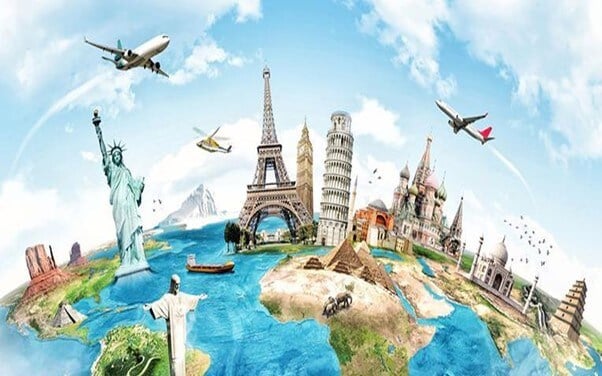Tourism

With millions of people traveling every year, tourism has become one of the largest and fastest-growing industries in the world. When people travel from one place to another for leisure, then it leads to tourism. Moreover, it leads to job creation and thus elevates the GDP level of the country, which contributes to economic Growth.
However, just like any other industry, tourism has drawbacks as well. Tourism can harm the society, culture, and environment of an area. As a result, it’s critical to thoroughly consider tourism’s advantages and disadvantages to ensure that it only proves advantageous.
Top 5 Advantages of Tourism
Some of the advantages of tourism are as follows:
#1 Economic Growth
By generating foreign exchange revenues, countries can pay off debt or finance imports, leading to better economic Growth. Additionally, it may result in the establishment of new companies and markets, which impacts the economy as a whole. Tourism also led to the creation of jobs, thus affecting the country’s GDP as a whole.
#2 Social Benefits
The understanding and preservation of cultural heritage can be enhanced by tourism. Tourism can help influence the social engagement and knowledge of communities. Tourism lets people see monuments, palaces, and other historical places, exposing them to different cultures. This tells people about culture and values that help break stereotypes and misconceptions. This results in greater inter-community empathy, understanding, and respect.
#3 Education And Personal Growth
Tourism lets you learn about the place, its culture, and its heritage. This makes you sound knowledgeable. Moreover, when you are familiar, there is tremendous potential for personal Growth. Personal Growth also leads to better business opportunities.
#4 Creation of Jobs
Tourism led to the creation of jobs. The country’s locals can find jobs at lounges, bars, casinos, hotels, parks, zoos, entertainment points, and other places. A career in tourism helps people to earn a decent income and live their lives quickly.
#5 Breaks the Stereotypes
When you visit another nation and see its traditions and religious beliefs, you can learn about new perspectives and customs. This helps build a broader perspective and brings you closer to people from other communities. Moreover, once you feel their culture, it all breaks your myths and notions about different cultures.
Top 5 Disadvantages of Tourism
As mentioned earlier, there are both advantages and disadvantages of tourism. So, let us look at the penalties of tourism:
#1 Degradation of the Environment
When millions of people travel to a destination, it leads to a high tourist influx at the goal. This is because when so many people travel to a place, it increases the number of vehicles, leading to a rise in carbon emissions. Moreover, when so many tourists are present at the same site, it can also increase the garbage, leading to the generation of a massive quantity of non-biodegradable waste. This impacts the environment badly.
#2 Depletion of Natural Resources
Tourism can lead to the depletion of natural resources. When tourists come to a place, they eat food, drink water, and even use fuel to travel across the area. This can create pressure on countries that have limited access to such resources.
#3 Harm to Local Culture
Due to the massive tourist influx, the countries have started commercializing their rich heritage and culture. While not every community will consider this bad, some communities are compassionate towards their culture and may feel it is a disgrace and dishonor of their culture. An enormous number of visitors come to see their unusual way of life and traditions. The countries commercialize their culture by allowing people to wear their traditional dress and be a part of traditional rituals.
#4 Over Dependence on tourism
When countries consider tourism their primary sector for Growth and development, they neglect other industries. This can lead to several problems, as tourism can get poorly affected during natural disasters, war, or unrest in the country. Moreover, if the government is forced to close its border, the country’s stability can also be impacted for longer. In such cases, tourism operators may need to adjust their strategies, such as considering Rezdy alternatives to streamline operations and manage bookings more efficiently during challenging times.
#5 Seasonal Nature
Some places are best visited during a specific time of the year. In such scenarios, such countries face many issues before and after the period as people’s earnings reduce, and they must look for alternate sources to earn money. Moreover, several people lose their job due to the low influx of tourists, which impacts their livelihood badly.
Conclusion
There are both advantages and disadvantages to tourism. On the plus side, tourism can have both a favorable impact on the economy and drawbacks. Because of this, it’s crucial to manage tourism operations responsibly and sustainably through careful planning, community involvement, and the implementation of sustainable tourism practices. The government must follow an approach to minimize damage and maximize the advantages. If you’re passionate about building a career in tourism, pursuing an MBA in Travel and Tourism can equip you with the skills and knowledge needed to excel in this thriving industry.
Recommended Articles
We hope that this EDUCBA information on “Advantages and Disadvantages of Tourism” was beneficial to you. You can view EDUCBA’s recommended articles for more information,
